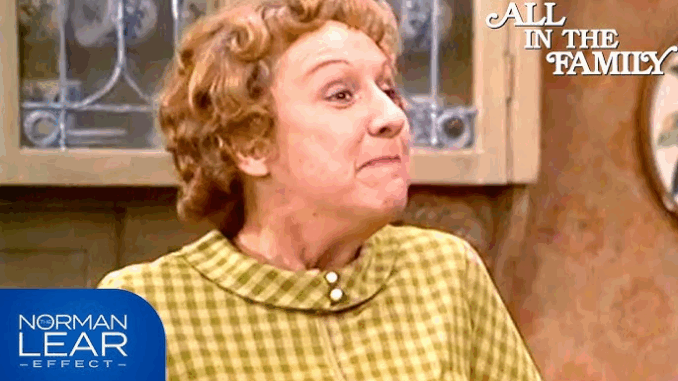
When All in the Family premiered on January 12, 1971, no one could have predicted the seismic shift it would bring to American television. Created by Norman Lear and based on the British sitcom Till Death Us Do Part, the show shattered the conventions of traditional sitcoms, replacing slapstick and simple gags with raw, unfiltered conversations about race, politics, and social issues. More than five decades later, All in the Family remains a cultural touchstone — not only for its bold content, but also for its enduring impact on how television reflects society.
At the heart of the show was Archie Bunker, portrayed brilliantly by Carroll O’Connor — a working-class, World War II veteran from Queens, New York. Archie was loud, opinionated, bigoted, and, paradoxically, deeply human. He was a man of his time, clashing constantly with his liberal son-in-law Michael “Meathead” Stivic (Rob Reiner), his open-hearted daughter Gloria (Sally Struthers), and his sweet, long-suffering wife Edith (Jean Stapleton). Their modest home became a battleground of ideologies — a microcosm of a divided America.
What made All in the Family revolutionary was its willingness to go where no sitcom had dared to go before. It tackled taboo topics such as racism, women’s rights, homosexuality, the Vietnam War, and even sexual assault — all within the framework of a prime-time comedy. It was the first show to feature the sound of a flushing toilet on television, a minor but telling sign of how it pushed boundaries.
Critics and viewers alike were initially divided. Some were offended by Archie’s blatant bigotry and the show’s frankness, while others saw it as a brilliant satire that held up a mirror to society’s flaws. But its success was undeniable. By 1972, All in the Family had become the most-watched show in America, a position it held for five consecutive years. It won numerous Emmy Awards, including four for Outstanding Comedy Series, and spawned multiple spin-offs, including Maude, The Jeffersons, and Good Times.
Norman Lear, the creative force behind the series, used the platform not to preach, but to provoke thought. “You can get people to laugh,” he once said, “and while their mouths are open, you can slip in a little food for thought.”
Today, in an era of divided politics and renewed cultural debates, All in the Family feels as relevant as ever. Its legacy is seen in countless modern shows that tackle real-world issues with humor and heart — from The Simpsons to Black-ish to The Conners. While the world has changed, the questions it raised remain. And in many ways, we’re still sitting in Archie Bunker’s living room, trying to make sense of it all.
